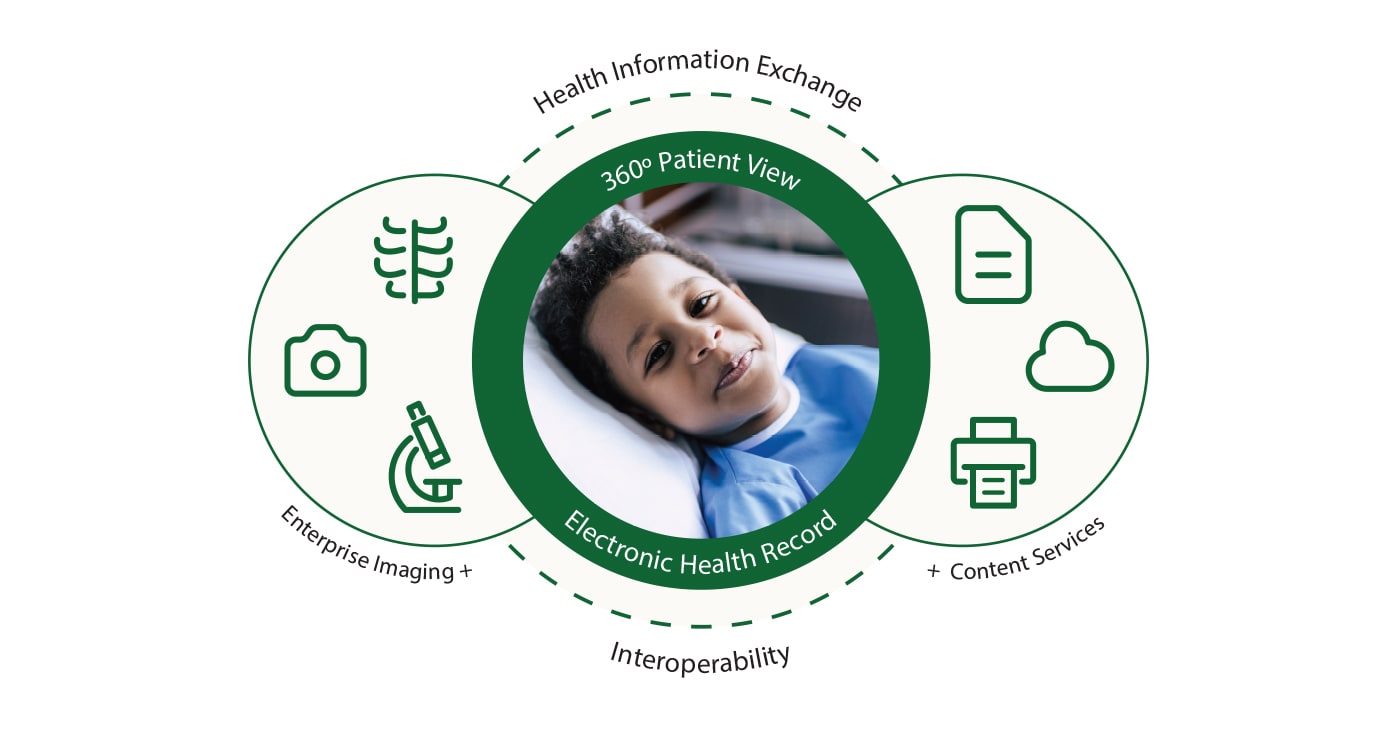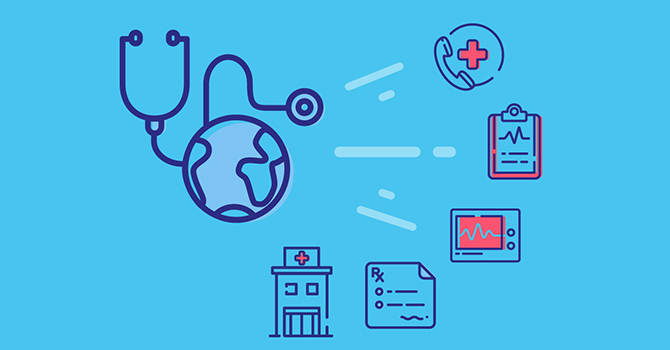Unveiling the Advantages of Healthcare RCM in Improving Effectiveness and Accuracy in Revenue Cycle Monitoring
In the quickly advancing healthcare landscape, the value of Revenue Cycle Administration (RCM) can not be overemphasized. As healthcare carriers strive for precision and performance, RCM arises as a critical device in streamlining operations, lessening mistakes, and enhancing monetary end results.
Simplifying Administrative Tasks

On top of that, the integration of electronic wellness documents (EHR) with RCM systems helps with real-time information access and sharing, making it possible for health care experts to make informed choices promptly. This interconnectedness not only boosts communication between management and clinical groups however also improves person fulfillment by lowering waiting times and billing discrepancies - Healthcare RCM. Furthermore, streamlined management processes permit better compliance with governing criteria, mitigating dangers related to audits and penalties
Inevitably, the concentrate on refining administrative tasks in RCM brings about set you back savings and boosted economic performance. By purchasing automation and maximizing process, healthcare companies can accomplish a more lasting profits cycle, making sure long-term viability and the capacity to adapt to developing industry needs.
Enhancing Claims Handling
Exactly how can health care organizations enhance the efficiency of their cases handling? The integration of innovative Profits Cycle Management (RCM) systems supplies a robust option. By taking advantage of automation and advanced analytics, RCM systems streamline the complicated and typically cumbersome insurance claims refining tasks. Automation lowers hands-on information entry mistakes, makes sure compliance with the current billing codes, and increases the overall insurance claims lifecycle from entry to compensation.
Moreover, real-time analytics play an essential duty in improving insurance claims processing effectiveness. These analytics devices give insights into traffic jams and potential denials, permitting doctor to address issues proactively. Predictive analytics can anticipate patterns in claim rejections, making it possible for preemptive measures to reduce them, therefore minimizing the time taken for claims to be processed and authorized.
Furthermore, the fostering of digital health documents (EHR) incorporated with RCM systems ensures seamless data flow, minimizing redundancies and increasing the precision of information sent in claims. A regular comments loophole promoted by RCM systems even more fine-tunes the process, cultivating constant renovation.
Inevitably, by leveraging technology-driven remedies in insurance claims processing, medical care organizations can enhance functional efficiency, improve capital, and supply a smoother experience for people and team alike.
Minimizing Economic Mistakes
Accurate monetary administration is crucial in medical care, where decreasing monetary errors can significantly influence operational success. Monetary errors, whether because of inaccurate invoicing, coding mistakes, or mismanagement of individual accounts, can result in substantial earnings loss and stretched partnerships with individuals and payers. Dealing with these errors is vital to preserve a health care company's economic health and enhance its reputation.
Healthcare Income Cycle Management (RCM) plays a critical function in lessening such mistakes through structured processes. By applying standard treatments for invoicing, coding, and collections, medical care service providers can guarantee that economic transactions are taken care of with accuracy. Comprehensive training for personnel on existing coding regulations and billing methods likewise resource decreases the probability of mistakes, guaranteeing cases are correctly processed and repaid.

Moreover, complete audits and normal financial reviews within the RCM structure permit the very early discovery and correction of inconsistencies. Making certain precision in patient data entry and verification additionally minimizes mistakes, as this is frequently a main source of mistakes. By concentrating on these critical locations, medical care companies can reduce financial errors, thus securing their profits streams and boosting total functional effectiveness.
Leveraging Advanced Technologies
In today's swiftly evolving medical care landscape, leveraging advanced innovations is necessary for maximizing Profits Cycle Monitoring (RCM) procedures. By incorporating innovative options such as man-made knowledge (AI), artificial intelligence (ML), and robot process automation (RPA), doctor can significantly boost the performance and precision of their RCM operations. These technologies assist in simplifying repeated tasks, reducing manual errors, and enabling faster processing of cases.

Additionally, the combination of blockchain modern technology enhances data safety and security and openness within RCM (Healthcare RCM). It makes certain that sensitive information is protected while maintaining an immutable record of purchases. This is essential for building count on with clients and stakeholders
Boosting Financial Performance
Building on the efficiencies gained through advanced technologies, health care companies can considerably improve their financial performance by fine-tuning their Income Cycle Monitoring (RCM) approaches. By enhancing billing procedures, minimizing case rejections, and enhancing capital, health care establishments can accomplish better financial stability. Executing robust RCM solutions permits service providers to simplify management jobs, minimizing the moment and sources spent on manual data access and claim processing. This efficiency leads to quicker declare reimbursements and entries, making best use of earnings collection.
In addition, information analytics within RCM systems offer important understandings right into operational bottlenecks and monetary patterns. By leveraging these understandings, medical care providers can make informed Learn More decisions to enhance monetary results, such as readjusting payment techniques or renegotiating payer agreements. Boosted precision in coding and documentation further reduces claim rejections and audits, fostering a smooth income cycle.
Additionally, client engagement tools integrated within RCM platforms enhance patient complete satisfaction by supplying transparent invoicing info and versatile repayment options. This transparency not just boosts patient-provider partnerships yet additionally motivates timely repayments, minimizing impressive balance dues.
Final Thought
Health Care Income Cycle Management considerably optimizes efficiency and precision by enhancing administrative tasks and improving cases handling. Through the decrease here of monetary errors and the assimilation of sophisticated technologies such as AI and anticipating analytics, RCM assists in compliance with payment codes and supplies important understandings into financial patterns. This systematic strategy not only minimizes prospective claim rejections but additionally increases financial efficiency, thereby cultivating count on and openness with clients and stakeholders within the healthcare system.
As health care companies strive for precision and efficiency, RCM arises as a pivotal device in streamlining operations, decreasing errors, and boosting financial results.Simplifying administrative jobs in healthcare income cycle monitoring (RCM) offers considerable benefits by enhancing functional efficiency and lowering the worry on team.Medical Care Income Cycle Management (RCM) plays a crucial function in decreasing such errors via structured processes.In today's swiftly evolving health care landscape, leveraging advanced innovations is vital for maximizing Earnings Cycle Monitoring (RCM) procedures.Building on the performances gotten via advanced technologies, healthcare providers can significantly boost their monetary performance by refining their Profits Cycle Administration (RCM) methods.